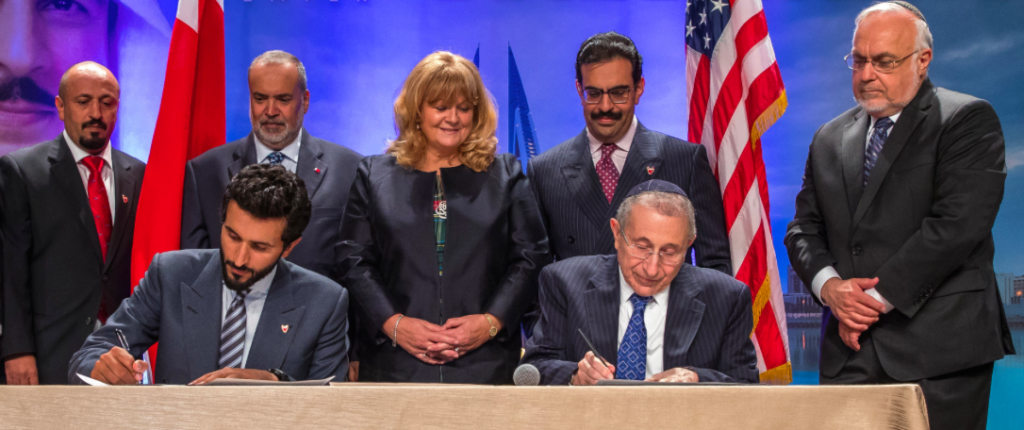The King of Bahrain has sought to promote his country as a global champion of religious tolerance, with a declaration that advocates freedom of religion for all and rejects extremism.
In the Bahrain Declaration, King Hamad bin Isa Al Khalifa “unequivocally reject[s] compelled observance”.
The one-page pledge, which was co-sponsored by the Jewish US-based Simon Wiesenthal Center, also calls for the condemnation of terrorism, of stirring up extremism, of suicide bombing and of sexual slavery.
Its launch last week at a Los Angeles hotel formed part of an eight-day roadshow called “This is Bahrain“.
Interfaith leaders toured @musoftolerance before announcement of The Bahrain Declaration on Religious Tolerance – by Bahraini King Hamad. pic.twitter.com/2WccxhJeW1
— SimonWiesenthalCntr (@simonwiesenthal) September 13, 2017
Rabbi Abraham Cooper, the Centre’s associate dean and social action head, told World Watch Monitor that Muslim, Christian and Jewish scholars had looked over the king’s text before it was published. He added that it was the first such declaration by the head of an Arab state. “We hope to take this text and get sign-offs from leaders around the world of all faiths,” he said, adding that the king had also pledged to build a centre akin to the Wiesenthal museum of tolerance.
Rabbi Cooper said the fight against Islamic extremism required “ammunition … that had to be provided first and foremost by Muslims” and that the centre regarded King Hamad as “a serious partner”.
The launch was attended by the king’s son, Prince Nasser bin Hamad al Khalifa, and some 400 religious leaders, including Buddhists, Sikhs, Muslims, Jews and Christians, among whom were the American Evangelical pastor Johnnie Moore, Coptic leaders, and some Catholic priests. Rabbi Cooper said senior Catholic figures had been invited but were unable to attend.

“Even if this is just waving a flag, it is a very positive development,” Ashty Bahro, a church leader in Dohuk, Iraq, and a former chairman of the Evangelical Alliance in Kurdistan, told Jayson Casper, writing for the website of the US-based Christianity Today. “With such a high-level leader speaking out on the subject, it will encourage Muslims to accept the minorities in the region.”
More than half the population of Bahrain is expatriate; 14 per cent are Christian and 10 per cent are Hindu. The Bahrainis include some native Christians and fewer than 50 Jews. Because neighbouring Saudi Arabia prohibits the building of non-Muslim places of worship, Coptic Christians working there cross into Bahrain to worship.
However, Imad Shehadeh, president of Jordan Evangelical Theological Seminary, told Christianity Today that “the deficiency” in the declaration was that it did not specifically state “that Muslims can freely leave Islam in order to adopt another religion”. According to Rabbi Cooper and Rabbi Marvin Hier, founder and dean of the centre, who both met the king earlier this year, King Hamad denounced the Arab boycott of Israel and declared that Bahrainis were free to visit the Jewish state. The Al-Monitor website linked the Bahraini king’s declaration to “pro-Israel activity [undertaken to] earn points in the White House”. Rabbi Cooper said Bahrain’s rulers were facing threats from Iran.
Amnesty International has accused Bahrain’s ruling Sunni minority of using “an array of tools” to “crush” human rights defenders and political activists, many of whom come from the country’s Shia majority.
Bahrain ranks no. 48 in the Open Doors’ 2017 World Watch List of countries where it is most difficult to be a Christian, with the charity noting that in the “relatively tolerant” country, “proselytising Muslims is illegal [and] the constitutional provision regarding religious freedom is full of contradictions”.
